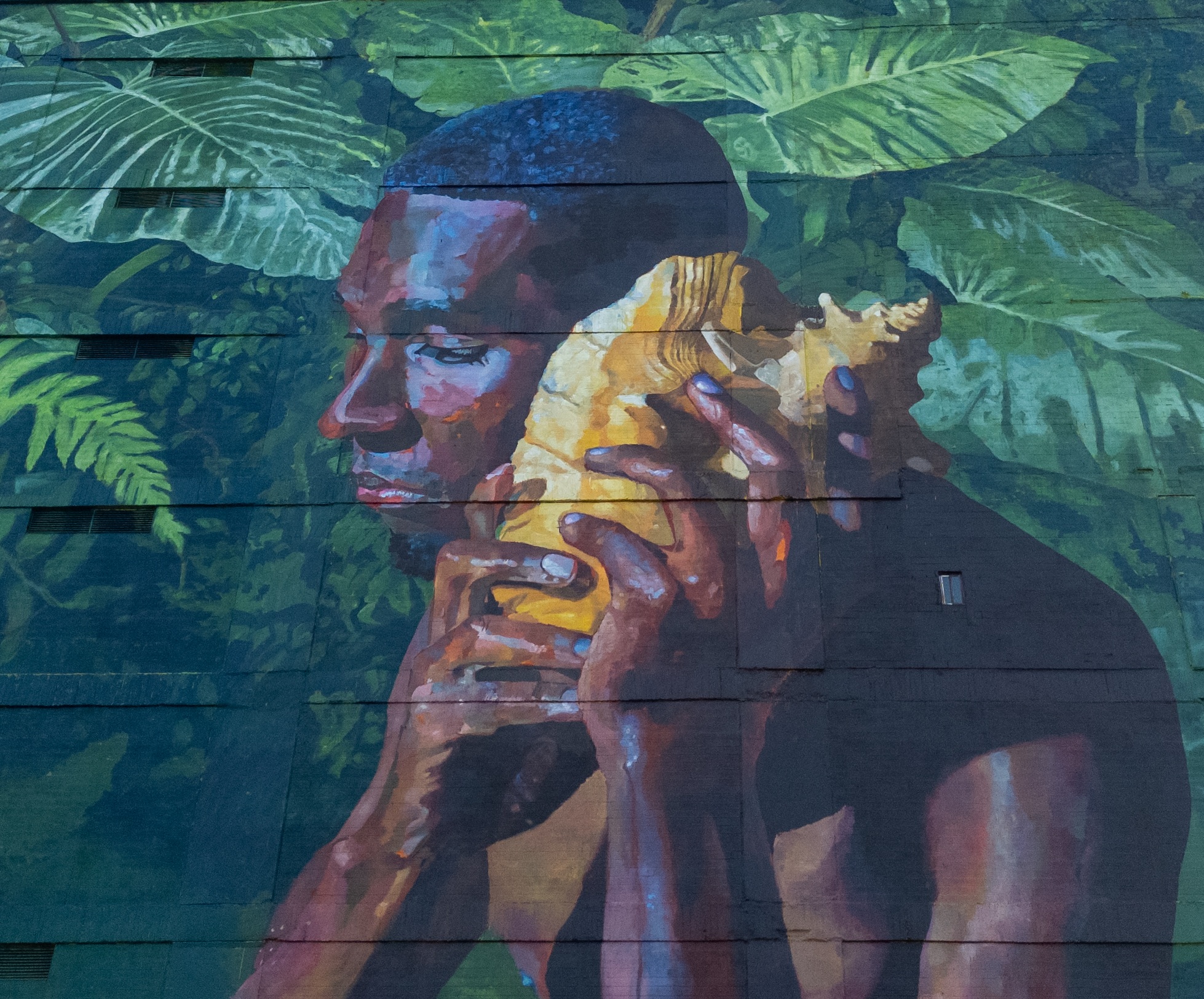Explore Issues
- Arts and Culture
- Decolonizing Thought
- Environmental Justice
- Health
- Languages and Education
- Science
- Social and Gender Justice
- Uncategorized
Filter by Country
-

Medellín Is Also Black
Colombia, 2026. Medellín is a place that has inspired songs such as “Me voy para Medellín” by El Combo de las Estrellas, “Medellín” by Madonna, and even “Medallo City” by Maluma, all of which praise its natural beauty, culture, and nightlife. However, the fantasy conveyed by the international music industry disappears just a few streets…
-

Medellín Is Also Black
Colombia, 2026. Medellín is a place that has inspired songs such as “Me voy para Medellín” by El Combo de las Estrellas, “Medellín” by Madonna, and even “Medallo City” by Maluma, all of which praise its natural beauty, culture, and nightlife. However, the fantasy conveyed by the international music industry disappears just a few streets…
-

Brazil: Manifest for Life of 45 Tribes in Piaraçu
FROM THE EDITORS: As many as 600 indigenous people representing 45 different tribes met in the Amazon to strengthen their ties under the Alliance of the Peoples of the Forest, and push forward a strategy of resistance against the Brazilian government’s land-grabbing policies that favor large meat factory farms, extractivist industries, and monocultures. The Alliance’s…
-

“We need each other to heal:” Native Americans help Native Americans overcome domestic violence
By Anikka Abbott, Cronkite News | Originally published on Dec. 23, 2019 LAS VEGAS – An opening prayer welcomes 75 Native American men and women from across the nation, gathered at a hotel to learn how to use tradition to heal from trauma – and to help others heal, too. “My grandmother was killed by her husband,” said…
-

Wet’suwet’en Hereditary Chiefs Evict Coastal GasLink from Territory
FROM THE EDITORS: Wetʼsuwetʼen is a First Nations people living in British Columbia, Canada. They call themselves Wetʼsuwetʼen, which means “People of the Wa Dzun Kwuh River.” For hundreds of years, the Hereditary Chiefs of Wet’suwet’en have maintained, without assigning or subject to any treaty, the use and occupation of the 22,000 square kilometers of…
-

The Selk’nam People, Once Declared Extinct, Reclaim Recognition
FROM THE EDITORS: Due to its geographical location, right in Ona-sin land (Tierra del Fuego), the Selk’nam People’s contact with the white man was marked by the forced transit of explorers and traders. Newcomers hunted local fauna to the point of extinction, species on which the Ona People depended on for sustenance. In the late…
-

Mexico: “We Are Blacks from the Coast” Project
Mexico: During the colonial era, demographically, the majority population was the Indigenous People, the second-largest was of African origin, and the third was whites and mestizos of European descent. Mexico had two Black presidents: the Generals Vicente Guerrero and Juan Álvarez (called “El Pinto” because he suffered from vitiligo. Because of the white spots on…
-

Wounded Knee: A Lasting Struggle for Indigenous Rights
On December 29, the Wounded Knee massacre is commemorated in the US, where more than 300 men, women, and children lost their lives under the hands of the US military forces. The Big Foot Memorial Riders (now called the Future Generation Memorial Riders, O’maka Tokatakiya) commemorate this date through a spiritual ritual of empowerment and…
-

Honduras: Guancasco Lenca, A Peace Ritual Between Indigenous Peoples
Photos by Pável Uranga Before the arrival of the Spaniards to Abya Yala, indigenous peoples maintained their cultural customs and traditions, as old as more than two thousand years before our era, even older in some areas. With the arrival of the Spaniards, everything was desecrated: peoples, cultures, historical records (pyramids, codices, languages, traditions, written,…
-

Tribes Lead the Way to Revive Regional Salmon Runs
This article first appeared on smea.uw.edu/currents, a student-run blog about pressing environmental issues, hosted by the University of Washington School of Marine and Environmental Affairs, “Tribes Lead the Way to Revive Regional Salmon Runs” By George Thomas Jr. We are all salmon people, and we know what we need to do. Such was the message…